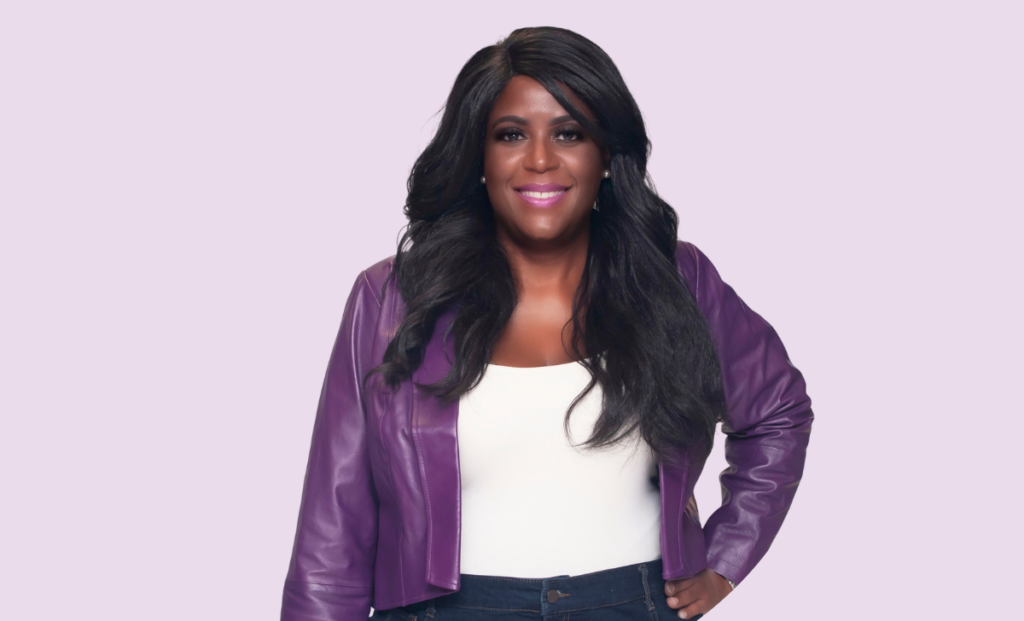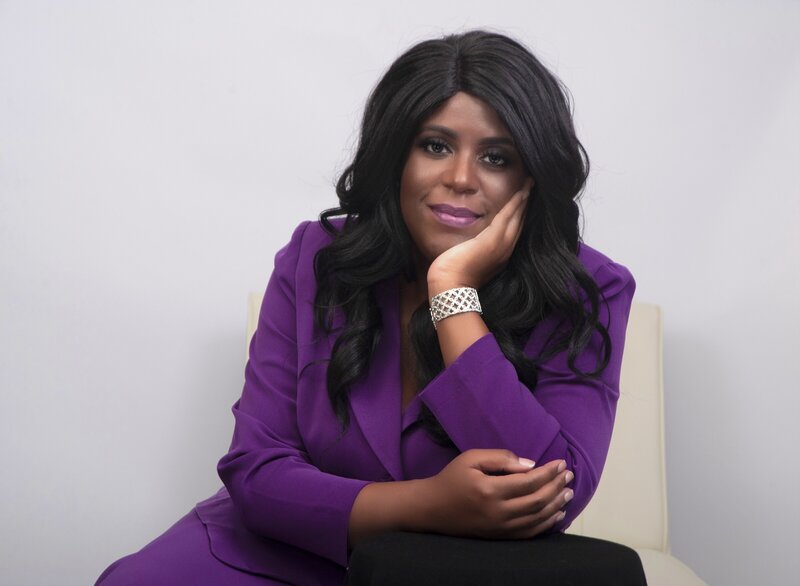April 14, 2025
Have you ever left a workplace feeling like you’d just survived an episode of a workplace reality TV show, complete with drama, gaslighting, and the occasional narcissistic coworker? If you’re a high-achieving Black woman, you know how toxic workplaces hit differently. They don’t just drain your energy; they can chip away at your confidence and mental well-being.
But here’s some good news: you can recover from toxic workplaces, reclaim your power, and thrive in your career. And yes, you’re about to do it with flair, confidence, and maybe even some Beyoncé playing in the background. Keep reading to discover exactly how to transform your career and mindset after a toxic job.


What is a Toxic Workplace?
Before we dive into how to recover from toxic workplaces, let’s define what we’re dealing with. A toxic workplace is more than just annoying colleagues or tough deadlines. It’s an environment where negativity, dysfunction, and unhealthy behaviors thrive. Think microaggressions, unreasonable expectations, lack of support, or leadership that seems to be auditioning for a villain role in a corporate drama.
For Black women, this toxicity can be amplified by subtle biases, double standards, and the constant pressure to prove you belong. It’s not just about the work, it’s about how the environment undermines your sense of self. Which makes it challenging from many women to recover from toxic workplaces.
Recognizing the signs is crucial. If you’ve been dealing with chronic stress, self-doubt, or feelings of isolation, it might just be that your workplace was the problem, not you.
How Do Toxic Workplaces Affect Confidence and Mental Health?
Let’s keep it real: toxic workplaces don’t just affect your 9-to-5; they spill into your 5-to-9. They leave you doubting your skills, questioning your worth, and replaying uncomfortable moments in your head like a bad playlist.
The mental toll is significant. Recovering from toxic workplaces means confronting burnout, anxiety, depression, and even physical symptoms like headaches or insomnia. For high-achieving Black women, the added stress of navigating subtle biases and microaggressions can make the impact even heavier.
But here’s the thing: your confidence and mental well-being are resilient. With the right steps, you can rebuild, recover from toxic workplaces, and come out stronger than ever.
8 Steps to Recover From Toxic Workplaces
1. Identify the Toxicity and Acknowledge Its Impact
The first step to recovery is calling it what it was: toxic. Reflect on what made the environment harmful. Was it the leadership? The culture? The constant microaggressions?
Write it all down, but don’t dwell. This isn’t about dragging your past job; it’s about understanding what you need to heal from. And most importantly, remind yourself: the toxicity wasn’t your fault.
2. Detox Your Mindset
Leaving a toxic workplace is like ending a bad relationship—you’ve got to detox your mind from all the negative self-talk and self-doubt it left behind.
Start by reminding yourself of your worth. Write down your career wins, big and small. Practice affirmations like, “I am skilled, capable, and deserving of respect.”
And if that inner critic starts whispering doubts (thanks, toxic workplace), tell it to take several seats.
3. Reclaim Your Career Narrative to Recover from Toxic Workplaces
You are not your past job. Let me repeat that for the folks in the back: YOU ARE NOT YOUR PAST JOB. I get it, that first step to remove yourself from a toxic job feels scary.
When I left, it felt like the carpet had been pulled from under me. And I was just free falling. I didn’t have anyone in my corner giving me advice. So it took me a minute until I realized it was one job. And there was another one that recognize and pay me for my value. That would stress me out!
Take time to reassess your career goals.
What lights you up?
What’s your dream role?
Update your LinkedIn and resume to reflect the badass leader you are. Highlight your achievements, not the stressful environment you survived.
And when you’re ready to talk about your toxic workplace in interviews, frame it as a learning experience: “It taught me the importance of alignment and values in leadership.”
4. Set Boundaries That Protect Your Peace
Boundaries are your new best friend. Toxic workplaces often blur boundaries, leaving you feeling overworked and underappreciated. Not anymore.
In your next role, be intentional about setting limits. If you value work-life balance, stick to it. If you need clear deliverables and timelines, communicate that. Boundaries aren’t just about saying “no”. They’re about saying “yes” to what matters most… to YOU.
5. Prioritize Self-Care and Mental Health
After escaping a toxic workplace, your mental health deserves some serious TLC. Self-care isn’t just bubble baths (although, yes, do those too); it’s about reclaiming your time and energy.
Consider therapy, coaching, or journaling to process your experience. Build a routine that nourishes you. Whether it’s yoga, reading, or dancing in your living room.
Remember, self-care isn’t selfish. It’s about stepping away from survival mode.
6. Surround Yourself With Support
You don’t have to do this alone. Build a support system of mentors, friends, and coaches who understand your journey.
Professional networks for Black women executives can be a game-changer. These spaces offer connection, inspiration, and sometimes the perfect pep talk when you need it most.
And if you need a safe space to strategize your next career move, I’ve got your back (more on that later).
7. Focus on Personal Branding
Your personal brand is your career superpower. After leaving a toxic workplace, use this opportunity to redefine how you’re perceived in your industry.
Show up on LinkedIn with thought leadership posts and updates about your wins. Network with intention and let your brilliance shine.
Your personal brand isn’t just a résumé. It’s your legacy. Make sure it says what You want it to say.
8. Embrace the Power of “No”
Toxic workplaces often teach us to say “yes” to everything to avoid conflict. But guess what? You’re in charge now, and “no” is a complete sentence.
Whether it’s declining a job offer that doesn’t align or pushing back on unreasonable demands, saying “no” is an act of self-respect. Own it.
Early Recovery Matters
To recover from toxic workplaces isn’t just about finding another job; it’s about rediscovering your confidence, mental well-being, and career joy.
For high-achieving Black women, this journey is also about breaking free from environments that don’t value your brilliance. It’s about stepping into spaces where you’re celebrated, not just tolerated.
Why Recovering From Toxic Workplaces Is the Key to Thriving in Your Next Role
When you take the time to recover from toxic workplaces, you’re not just healing from past harm. But you’re creating a powerful foundation for long-term success.
High-achieving Black women often internalize the stress and microaggressions they’ve endured, but recovery is about more than moving on. It’s about moving forward with intention.
By investing in your recovery, you gain:
- Clarity on what environments truly support your growth
- Confidence to advocate for your needs and set healthy boundaries
- Freedom from imposter syndrome and self-doubt
- Focus to pursue roles that align with your values and vision
The process may feel uncomfortable at times, but the transformation is worth it. You deserve a career that doesn’t just pay the bills but also nurtures your brilliance, respects your boundaries, and reflects your worth.
Don’t just survive the aftermath. Recover from toxic workplaces and rebuild on your own terms.
Ready to Create Your Safe Space?
High-achieving Black women come to me when they’re ready to reclaim their careers and recover from toxic workplaces. Together, we create a roadmap for success that aligns with your goals, values, and unique brilliance.
Sign up for a Safe Spaces session today at twannacarter.com. Let’s transform your career and your mindset. Because you deserve nothing less than excellence.


I’m a certified executive coach, ICF Professional Certified Coach (PCC) and Unbreak My Soul Safe Spaces Facilitator for Twanna Carter Professional & Personal Coaching, LLC. I flubbed my first career transition from the military so badly, it took me the next 10+ years to build my confidence and recover. I know what it feels like to struggle with imposter syndrome and uncertainty about my leadership skills in the workplace. It’s why I am dedicated to empowering Black women. Helping them navigate career challenges and uncertainty by providing them with the tools and strategies they need to be successful. Schedule a V.I.P. Roadmap session today.
If you enjoyed this blog, please share it. If you’re also feeling generous, consider Buying Me a Coffee.☕️
Curated Reads: Essential Books to Add to Your Personal Library
- Corporate Blues, The Untold Stories of Women in Toxic Workplaces, presented by Dr. Carey Yazeed, featuring Dr. Twanna Carter
- Job Offers 101 – Everything You’ve Always Wanted to Know by Dr. Twanna Carter
- Melaninated Magic: 180 Affirmations to Nurture Your Soul and Unleash Your Black Girl Joy by Dr. Twanna Carter
- Unbreak My Soul: How Black Women Can Begin To Heal From Workplace Trauma, by Carey Yazeed, PhD
- The Next Level: A 30-Day Career Growth Planner for Black Women by Dr. Twanna Carter
- 33 Tools to Remake Your Career by Paul Gabriel Dionne
- I’m Not Yelling: A Black Woman’s Guide to Navigating the Workplace (Successful Black Business Women), by Elizabeth Leiba.
- Crucial Conversations: Tools for Talking When Stakes Are High by Kerry Patterson, Joseph Grenny, Ron McMillan, and Al Switzler.
- Influence: The Psychology of Persuasion by Robert B. Cialdini.
- How to Win Friends and Influence People by Dale Carnegie.
- Overworked and Undervalued: Black Women and Success in America by Rosalyn D. Davis, Sharon L. Bowman, et. al.
- Power Negotiation – Getting to the Yes: Strategies to Get What You Want, When You Want It by Patrick Kennedy
- Set Free to Live Free: Breaking Through the 7 Lies Women Tell Themselves by Saundra Dalton-Smith, MD
Read my latest blogs…
- The Fear-Based Leadership Cycle Secretly Running Your Life. And How to Break ItFear is a powerful emotion. It can protect you, warn you, and heighten your awareness. But when fear begins to lead… Read more: The Fear-Based Leadership Cycle Secretly Running Your Life. And How to Break It
- Redefining Success. How Black Women Executives Are Leading a New Era of Authentic LeadershipThe New Leadership Trend. Redefining Success Across boardrooms, Zoom calls, and LinkedIn feeds, a powerful shift is underway. Women of color,… Read more: Redefining Success. How Black Women Executives Are Leading a New Era of Authentic Leadership
- How to Quiet the Inner Critic and Stop Second-Guessing Yourself in High-Stakes RoomsUnderstanding the Inner Critic Your inner critic is that persistent internal voice that judges, doubts, and second-guesses you. Ooften at the… Read more: How to Quiet the Inner Critic and Stop Second-Guessing Yourself in High-Stakes Rooms
- The Survival Blueprint. What To Do Immediately When You Realize You’re Being Managed OutUnderstanding What “Being Managed Out” Really Means. And Why Immediate Help Matters The first time I realized I was being managed… Read more: The Survival Blueprint. What To Do Immediately When You Realize You’re Being Managed Out
- 10 Powerful Reasons Why Black Women Entrepreneurs Are Leading the Rise of EntrepreneurshipWhy Black Women Entrepreneurs Are Leading the Rise of Entrepreneurship Entrepreneurship has always symbolized courage, innovation, and self-determination. And no one… Read more: 10 Powerful Reasons Why Black Women Entrepreneurs Are Leading the Rise of Entrepreneurship
- The Leadership Myth That Hurts High-Achieving Black Women. Why Slowing Down Doesn’t Make You Weak.Slowing Down Doesn’t Make You Weak Leadership isn’t just about speed, stamina, or sacrifice. It’s about authenticity, vision, and sustainable strength.… Read more: The Leadership Myth That Hurts High-Achieving Black Women. Why Slowing Down Doesn’t Make You Weak.
- Quiet Cracking -7 Signs You’re Not ‘Fine’. You’re Burning Out in SilenceUnderstanding Quiet Cracking Quiet cracking is a modern mental-health phenomenon that describes the slow, invisible unraveling of your emotional resilience. TalentLMS… Read more: Quiet Cracking -7 Signs You’re Not ‘Fine’. You’re Burning Out in Silence
- Top 10 Powerful Reasons for Career Change. Why It’s Never Too Late to Start FreshUnderstanding the Need for a Career Change Changing careers is no longer rare. It’s the new normal. Today, professionals across industries… Read more: Top 10 Powerful Reasons for Career Change. Why It’s Never Too Late to Start Fresh


















+ show Comments
- Hide Comments
add a comment